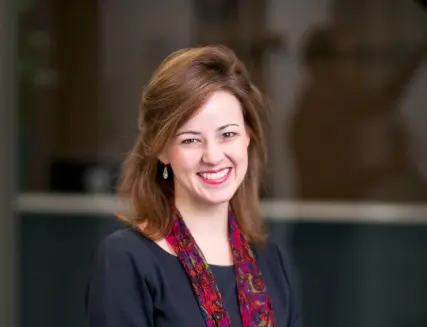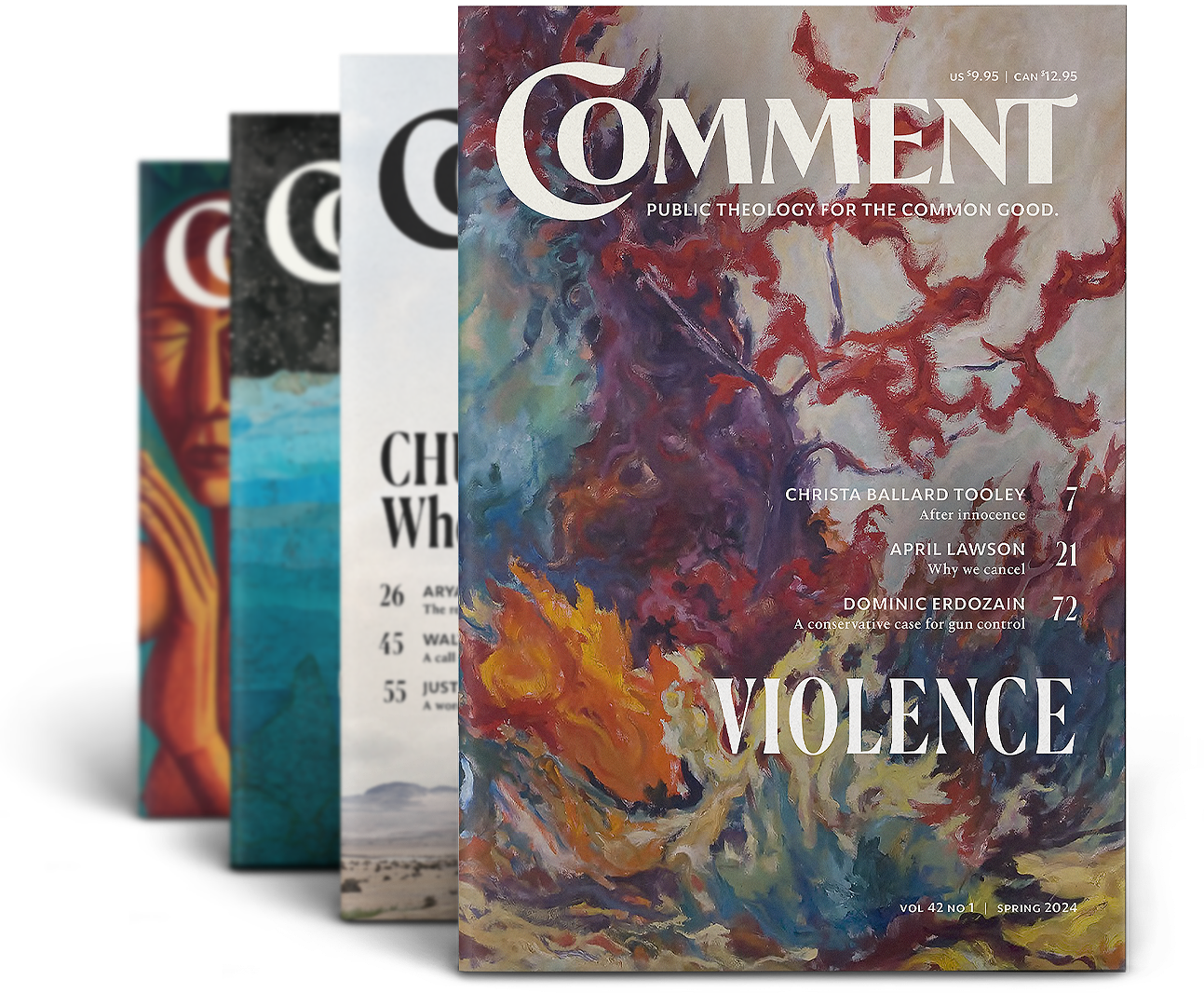We are living through times that often feel like one long commentary on Joni Mitchell’s line “you don’t know what you got till it’s gone.” From quotidian encounters on the street to public sacraments, hospitality in the flesh to basic truth-telling from our leaders, it is not the sophisticated accoutrements of an advanced civilization that have screamed in their absence, but rather the rudimentary things. The things we ordinarily take for granted, the “essential” and the core.
As I write in the twilight of this most revealing year, there is one societal staple that is tremoring with a particular foreboding: trust. Trust in other people, trust in institutions, trust in the future, trust in a shared story of hope. Symptoms of the rot abound: Surveys report that 70 to 80 percent of American Republicans believe that the most recent presidential election was rigged. More and more young people question the moral authority of religious leaders, police officers, business leaders, and even K–12 public school principals. We are seeing a crisis in the legitimacy of our political and epistemic authority structures. People increasingly claim their reality as the only reality, and no pain expressed from another’s life experience, no reason nor facts nor even personal appeals of goodwill, stand much chance of budging how one sees and where one stands.
Much ink has and will continue to be spilled on how we arrived at this depressing state of rigidity, and we at Comment commend that literature to you. But what this winter issue wants to do is brave the “what now?” question: What might it take to build some trust back in to our withered commons, and for those who have never tasted trust’s rewards, sow it reliably for the first time?
Not Simply Societal Stakes
We’ve all experienced the chipping away of this most vital resource at one level or another: the coarsening of public discourse, longtime friendships strained by political acrimony, important policy-making stalled due to a growing disgust with compromise, spiritual brotherhood among the baptized questioned due to perplexingly different moral priorities in the public square.
But there is a more personal cost for each of us, a cancer of hard-heartedness that creeps slowly unawares. When seeds of distrust are allowed to germinate, weeds of suspicion shoot up and tangle into a thicket that soon protects little but bloated self-righteousness and a narrowing eye. For human beings, this kind of joyless impermeability spells moral stagnation. For the Christian, it’s spiritual death.
I want to be careful here. Our characters are not shaped exclusively by other human beings, nor by the institutions we create or the norms nudging us toward patterned behaviours. We who discover a Prime Mover learn to rest on him as our first trust, without whom everything else is but shadow. But it is misguided to think that if we just know and trust God and the authorities he has given us, we need not put our trust in others too. Our fabric is a part of his fabric, our social architecture his tools of creation, formation, and redemption.
In many ways, the story of human development is one long test of what you can trust and how much, and then, in a delicious and noble turn, how much others can trust you. From the first rest of our newborn heads on mama’s chest, to our first crawl, to our first bike ride, to our first day of kindergarten, to our first time taking responsibility without adult supervision, to our first date, to our first job, to our first kid, and on and on, it’s a pendulum-like dance, part of the creational order. We were made to be heard and to hear, to see and be seen. As Old Testament scholar Walter Brueggemann is fond of saying, our life does not depend on power, or omniscience, or even being right. It depends on a relationship of fidelity. It is all about what lies between. And without trust, that precious space dissolves.
Spreading the Good Kind of Contagion
For all the high existential stakes, locating trust’s building blocks is surprisingly not the stuff of rocket science. Just reflect personally for a second: When have you trusted someone or something, and when have you suffered trust’s tearing?
Accounting for variables in personality and circumstance, my guess is there are some universal ingredients: We tend to trust those with proven integrity, with skill and a reliable track record of following through. We trust those who have our best interests at heart, especially those who have demonstrated a willingness to suffer for us. We trust those who display grit when the going gets tough, and even more so if we’ve experienced that tough in tandem. And, crucially, we trust those with whom we have frequent and regular contact, a shared project, a common experience, and, in the most powerful instances, the same love.
The oddities of pandemic life—social distancing especially—have blocked these regular encounters whose practice is so vital to trust’s maintenance. I remember well, at the height of the racial protests back in June, when sisters and brothers of colour in a forged family my husband and I are a part of, suddenly exploded in their Instagram stories: “All you white ‘friends’ who are saying nothing, I am watching and taking note.” The threat wrinkled my forehead: Never mind the impoverished capacities of a virtual medium to do the real work of justice; never mind the memories of years eating Thursday-night dinners together every week, celebrating Christmas mornings and Easters, throwing baby showers and walking through pumpkin patches sharing secrets and laughter. Three months of separation had reawakened suspicion across our lines of sociological difference; the funny frictions of ordinary solidarity replaced by earned anger at the system—just now turned personal.
But the loss in hospitality this year, the fewer hugs and opportunities for vulnerability, are not the originators of our trust moths. They’ve been reproducing for years. When the media ceases to respect half of the society it covers, contempt no longer needs to conceal itself and human caricaturing need not be a source of journalistic shame. When our elders shy away from teaching the breadth of the world’s moral traditions and young adults go out into the world without normative frameworks to discern what’s true and false in an information avalanche, you get mass insecurity, anxiety, and overwhelm. When, in a toxic mix of privilege and institutional guilt, you find universities encouraging a generation to smack reductive labels on their fellow man, you see a civil society slow down in fear and conspiracy. When you don’t see anyone in public leadership endeavouring to disagree with grace, nor do you see anyone who looks like you or speaks like you, scapegoating starts to feel justified. Finally, when a society allows its collective brain to attend only to the political—whether the binaries of right and left or the transactional calculus at the heart of politics—you get a citizenry characterized by short fuses, disgust, resentment, and a lack of imagination. You get, in short, what we have.
In the pages that follow, we hope to disarm these trends and provide a window into better beginnings that are grounded in the imago Dei that has been so desecrated of late. We’ve asked some pioneers in bridge-building to open up their toolkits, historic peacebuilders to reflect on courage and patience, institutions of credibility to share their secrets, and scholars of pluralism to shed light on the ways that moral difference need not be threatening. We’re also encouraging you to get acquainted with those communities whose radical commitment to peace in word and deed might just hold a candle to the life that really is life.
Mostly, we’re inviting you to join us in mapping a constructive way forward. Because yes, mistrust is contagious. But maybe, with a good match and enough wicks, trust can be too.



